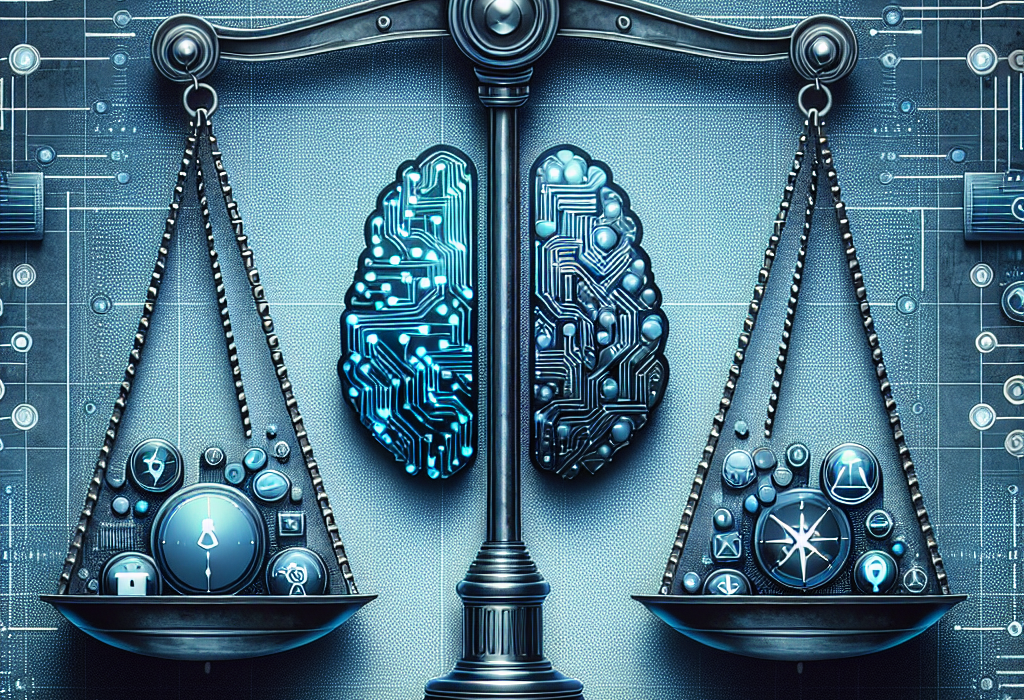The Ethics of Artificial Intelligence: Balancing Innovation and Responsibility
In recent years, artificial intelligence (AI) has rapidly transitioned from a futuristic concept to a fundamental component of modern life, influencing everything from healthcare and finance to entertainment and transportation. As AI technologies continue to evolve, they promise vast economic benefits and more efficient solutions to complex problems. However, they also raise profound ethical questions that society must address to balance innovation with responsibility.
The Promise and Perils of AI
The potential advantages of AI are undeniable. In healthcare, AI systems are being employed to diagnose diseases with unprecedented accuracy, often outperforming human specialists. Self-driving cars promise to reduce traffic accidents and fatalities significantly, while AI-driven financial models aim to personalize and optimize investment strategies. These innovations could lead to a future of increased efficiency, safety, and prosperity.
Despite these promising applications, AI’s rapid development also poses significant ethical challenges. There are growing concerns about privacy invasion as AI systems can collect and analyze vast amounts of personal data. Additionally, biases embedded in AI algorithms can perpetuate and even amplify societal inequalities, leading to unfair treatment in areas such as hiring, policing, and lending. Moreover, the potential for job displacement due to automation raises serious questions about economic equity and workforce readiness.
Navigating the Ethical Landscape
Addressing the ethical challenges presented by AI requires a multi-faceted approach involving technology developers, policymakers, ethicists, and the public. One critical aspect is ensuring transparency within AI systems. As these tools become more integrated into daily life, it is essential for users to understand how decisions are made and to have the ability to challenge unfair or biased outcomes.
Accountability is another crucial component. Developers and organizations must be held responsible for the impacts of their AI technologies. This includes implementing rigorous testing and validation procedures to minimize biases and unintended consequences before deployment. Furthermore, there must be clear legal frameworks that hold entities accountable for harm caused by AI systems, similar to laws governing other industries.
In addition to transparency and accountability, promoting inclusivity in AI development is vital. Diverse teams of developers and researchers are more likely to identify and mitigate potential biases in AI systems, ensuring that these technologies serve a broader range of societal needs and values. Efforts to democratize AI, making the technology and its benefits accessible to all, are also essential in preventing disparities and promoting social equity.
The Role of Governance
Effective governance is crucial in navigating the ethical complexities of AI. Policymakers must work to create regulatory environments that encourage innovation while safeguarding public interest. This involves drafting laws and guidelines that address issues such as data protection, algorithmic transparency, and ethical AI deployment.
International cooperation will also play a fundamental role as AI technology transcends borders. Collaborative efforts can help establish global standards and best practices, mitigating risks associated with unregulated AI development and fostering a culture of ethical responsibility.
Conclusion: A Path Forward
The ethical implications of AI highlight the critical need for a balanced approach that fosters innovation while ensuring responsibility. These technologies have the potential to reshape society for the better, but only if their development and deployment are guided by strong ethical principles. By prioritizing transparency, accountability, inclusivity, and robust governance, society can harness the transformative power of AI in a way that aligns with fundamental human values and advances the common good.
As we stand at the frontier of this technological revolution, it is imperative to engage in ongoing dialogue, research, and collaboration to navigate the ethical challenges and unlock the full potential of artificial intelligence. The choices made today will shape the future of AI and, ultimately, the world in which we live.

